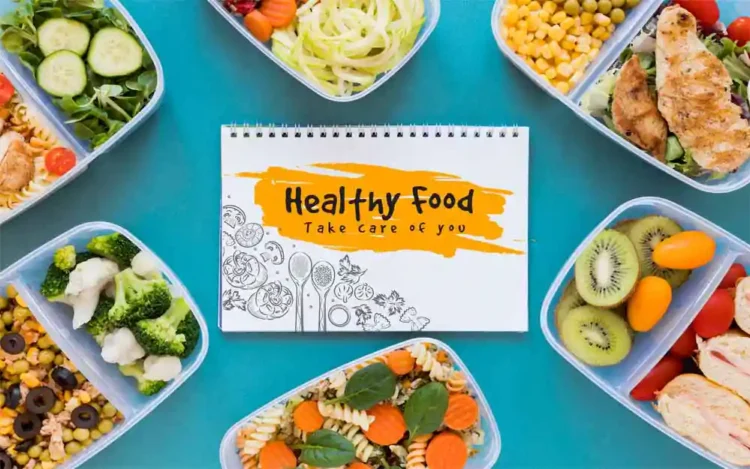Table of Contents
Dive into our essential guide on transformative weight loss strategies, featuring Keto, Paleo, Vegan diets, and beyond. Here, we distill the essence of each diet, highlighting their core principles, advantages, and considerations, to empower your decision-making. If you’re charting a course towards a healthier you or searching for a diet that resonates with your wellness objectives, you’ve found your starting line.
1 Introduction to Weight Loss Diets
Embarking on a journey to lose weight can be both exciting and overwhelming. With a myriad of diet options available, each promising significant results, it’s crucial to understand what weight loss diets entail and how they differ. This introduction aims to shed light on popular diets such as the Keto, Paleo, Vegan, and other prevalent weight loss diets, helping you make an informed choice that aligns with your health goals and lifestyle.
The term “weight loss diets” encompasses a variety of eating plans designed to help individuals shed excess pounds. These diets often differ in their approach to reducing calorie intake, altering nutrient composition, or both. For instance, some emphasize low-carb intake like the Keto diet, others focus on whole, unprocessed foods as seen in the Paleo diet, while diets like Veganism eliminate all animal products. Each diet has its unique philosophy and guidelines, which cater to different preferences and nutritional needs.
Understanding the principles, benefits, and challenges of these diets is crucial for a successful weight loss journey. It’s not just about choosing a diet but adopting a lifestyle that promotes healthier eating habits. This blog post series will dive deep into the specifics of each diet, providing comprehensive comparisons to guide your decision-making process.
2 Overview of Each Diet
In the realm of weight loss diets, variety is abundant. Each diet comes with its unique approach to shedding pounds and improving health. Here, we provide a concise overview of some of the most talked-about diets: the Keto Diet, Paleo Diet, Vegan Diet, and other popular choices. This overview will help you grasp the basics of each diet, setting the stage for a deeper exploration in the following sections.

Keto Diet: The Ketogenic or Keto Diet is a high-fat, low-carbohydrate diet. It involves drastically reducing carbohydrate intake and replacing it with fat. This reduction in carbs puts your body into a metabolic state called ketosis, where fat is burned for energy instead of carbs. The Keto Diet is known for its quick weight loss results and is often preferred by those looking for rapid changes.

Paleo Diet: The Paleo Diet, often known as the ‘Caveman Diet’, focuses on foods that were presumably eaten by early humans. This means high protein and fiber intake with a reduction in processed foods. It includes lean meats, fish, fruits, vegetables, nuts, and seeds – foods that in the past could be obtained by hunting and gathering. The diet excludes dairy, grains, and processed foods.

Vegan Diet: A Vegan Diet involves abstaining from all animal products and by-products. This means no meat, dairy, eggs, and often honey. It is rich in vegetables, fruits, grains, nuts, and seeds. The diet is chosen not only for weight loss but also for ethical and environmental reasons. It’s high in fiber and low in saturated fats, which is beneficial for weight loss and overall health.

Other Popular Diets: In addition to these, there are numerous other diets like the Mediterranean Diet, which emphasizes fruits, vegetables, whole grains, and olive oil; the Intermittent Fasting method, which cycles between periods of fasting and eating; and the Low-Carb Diet, which, similar to Keto, reduces carbohydrate intake.
3 Dietary Philosophy and Principles
The cornerstone of effective weight loss diets lies in their underlying philosophy and guiding principles. Each diet is rooted in a unique approach to nutrition and wellness, shaping the way we view food and its impact on our bodies. Understanding these philosophies is key to determining which diet aligns with your personal beliefs and lifestyle choices.
Keto Diet Philosophy: At the heart of the Keto Diet is the principle of ketosis — the metabolic state where the body uses fat, rather than carbohydrates, as its primary energy source. The philosophy emphasizes a drastic reduction in carb intake and a significant increase in fat intake. This shift challenges the conventional diet pyramid, placing fats at the forefront of dietary intake.
Paleo Diet Principles: The Paleo Diet is based on the concept of eating like our ancestors, which means consuming whole, unprocessed foods that would have been available in the Paleolithic era. The philosophy here is straightforward: if early humans didn’t eat it, neither should you. It’s about going back to the basics of nutrition, focusing on natural food sources while eliminating modern processed foods.
Vegan Diet Philosophy: Veganism is more than a diet; it’s a lifestyle choice. The vegan diet excludes all forms of animal exploitation and cruelty, whether for food, clothing, or any other purpose. In terms of dietary approach, it advocates for a plant-based diet that is rich in fruits, vegetables, grains, nuts, and seeds. The philosophy extends beyond weight loss, encompassing environmental and ethical considerations.
4 Typical Food Choices
When delving into weight loss diets, understanding the typical food choices that define each diet is crucial. These choices are not just about what you can or cannot eat; they reflect the nutritional philosophy of each diet. Let’s look at what a typical plate might look like for Keto, Paleo, Vegan, and other popular diets.
Keto Diet: The Keto diet is characterized by its high-fat, moderate-protein, and very low-carb profile. Typical foods include meats, fatty fish, eggs, butter and cream, cheese, nuts and seeds, healthy oils (like olive and coconut oil), and low-carb veggies (like greens, tomatoes, onions, and peppers). High-carb foods like grains, sugar, fruits, and starchy vegetables are largely off the menu.
Paleo Diet: In the Paleo diet, the focus is on consuming whole, unprocessed foods. This includes lean meats, fish, fruits, vegetables, nuts, and seeds. Foods that were not available to early humans, such as dairy products, legumes, grains, and processed foods, are excluded. The idea is to stick to ‘natural’ food options, avoiding anything that comes from modern agricultural practices.
Vegan Diet: The Vegan diet is entirely plant-based, excluding all animal products. Staples of this diet include fruits, vegetables, legumes (beans, lentils), grains (quinoa, barley), nuts, and seeds. Vegan diets also feature meat substitutes, dairy-free products, and various creative uses of ingredients like tofu and tempeh.
Other Popular Diets: Other diets have their unique food choices. For instance, the Mediterranean diet emphasizes fruits, vegetables, whole grains, olive oil, fish, and moderate wine consumption. Intermittent fasting, on the other hand, is more about when you eat than what you eat.
5 Nutritional Breakdown
In the landscape of weight loss diets, understanding the nutritional breakdown, particularly macronutrients and micronutrients, is essential. This knowledge not only guides you in selecting the right diet but also ensures your body receives the necessary nutrients for optimal health. Let’s dive into the macronutrient and micronutrient profiles of popular diets like Keto, Paleo, Vegan, and others.
Macronutrients: Macronutrients are nutrients that provide calories or energy. They are required in large amounts to maintain body functions and carry out daily activities.
- Keto Diet:
- High in fats (70-80% of daily calorie intake).
- Moderate in proteins (about 20%).
- Extremely low in carbohydrates (about 5%).
- Paleo Diet:
- Moderately high in proteins and fats.
- Lower in carbohydrates compared to a standard diet, but not as low as Keto.
- Emphasizes on whole, unprocessed foods.
- Vegan Diet:
- Generally higher in carbohydrates.
- Moderate in proteins, mostly from plant sources.
- Varies in fat content depending on food choices but often lower in saturated fats.
Micronutrients: Micronutrients are vitamins and minerals required by the body in smaller amounts but are crucial for growth, disease prevention, and well-being.
- Keto Diet:
- Might require supplementation for nutrients commonly found in high-carb foods like fruits and whole grains (e.g., B vitamins, Vitamin C).
- Paleo Diet:
- Generally provides a balanced intake of vitamins and minerals as it includes a variety of fruits, vegetables, nuts, and seeds.
- Vegan Diet:
- Special attention is needed to ensure adequate intake of Vitamin B12, iron, calcium, and omega-3 fatty acids, which are commonly found in animal products.
6 Short-term and Long-term Weight Loss Efficacy
When considering weight loss diets, it’s important to evaluate their effectiveness not just in the short term, but also in the long run. The sustainability of a diet is key to maintaining weight loss and improving overall health. Let’s examine how diets like Keto, Paleo, Vegan, and others fare in terms of short-term and long-term weight loss efficacy.
Short-term Weight Loss:
- Keto Diet:
- Known for rapid weight loss, especially in the initial stages.
- The significant reduction in carbs leads to a decrease in water weight and bloating.
- Paleo Diet:
- Can result in quick weight loss due to reduced calorie intake from cutting out processed foods and sugars.
- The high protein content can increase satiety, leading to lower calorie consumption.
- Vegan Diet:
- May lead to initial weight loss due to lower calorie intake from cutting out animal products.
- High fiber content can improve digestion and contribute to weight loss.
Long-term Weight Loss Efficacy:
- Keto Diet:
- Some find it challenging to adhere to in the long term due to its restrictive nature.
- Long-term success requires a significant lifestyle change and continuous monitoring of carb intake.
- Paleo Diet:
- Offers a more balanced approach and can be more sustainable than Keto.
- Focuses on whole foods, which can be beneficial for long-term health and weight management.
- Vegan Diet:
- Often considered sustainable due to its ethical and environmental motivations.
- Requires careful planning to ensure long-term nutritional adequacy.
7 Health Benefits Beyond Weight Loss
While the primary goal of weight loss diets is often to shed pounds, many of these diets offer additional health benefits that extend well beyond weight management. Understanding these benefits can provide a more holistic view of what each diet has to offer. Here’s a look at some of the key health advantages associated with the Keto, Paleo, Vegan, and other popular diets.
Keto Diet:
- Enhanced Brain Function: The Keto diet is known for its potential brain-boosting effects. By using ketones for energy instead of glucose, it may improve cognitive functions and has been studied in the context of neurological conditions like epilepsy and Alzheimer’s disease.
- Improved Blood Sugar Control: This diet can be beneficial for those with type 2 diabetes or at risk of developing it, as it significantly lowers blood sugar and insulin levels.
Paleo Diet:
- Reduced Inflammation: The emphasis on whole, unprocessed foods can lead to a reduction in systemic inflammation, a key factor in chronic diseases.
- Improved Heart Health: By cutting out processed foods and sugars, and including plenty of fruits and vegetables, the Paleo diet may contribute to better heart health.
Vegan Diet:
- Lower Risk of Chronic Diseases: A plant-based diet has been linked to a lower risk of heart disease, certain cancers, and type 2 diabetes.
- Enhanced Digestive Health: The high fiber content in a vegan diet supports healthy digestion and gut health.
Other Popular Diets:
- Diets like the Mediterranean diet are renowned for their heart-healthy benefits and potential to improve lifespan and reduce the risk of chronic diseases.
while the focus of these diets may be on weight loss, their impact on overall health is significant and diverse. From improving brain function and heart health to reducing the risk of chronic diseases, these diets offer a range of benefits that can contribute to long-term health and wellbeing.
8 Potential Risks and Side Effects
While weight loss diets can offer numerous health benefits, it’s equally important to be aware of their potential risks and side effects. Each diet, whether it’s Keto, Paleo, Vegan, or another popular choice, has its unique set of considerations. Being informed about these can help in making a balanced and safe dietary choice.
Keto Diet:
- Keto Flu: As the body adapts to burning fat instead of carbs, some people experience the ‘Keto flu’, characterized by symptoms like headaches, fatigue, and irritability.
- Nutrient Deficiencies: Due to the restricted intake of certain food groups, there’s a risk of deficiencies in nutrients like fiber, vitamins, and minerals.
Paleo Diet:
- Limited Nutrient Variety: The exclusion of whole grains, legumes, and dairy can lead to a lack of certain nutrients, such as calcium and B vitamins.
- High Intake of Red Meat: Some versions of the Paleo diet include a lot of red meat, which, if not balanced with other food groups, could lead to an increased risk of heart disease.
Vegan Diet:
- Nutritional Deficiencies: Key nutrients found in animal products, like Vitamin B12, iron, calcium, and omega-3 fatty acids, may be lacking in a vegan diet if not properly planned.
- Over-reliance on Processed Vegan Foods: Some may resort to heavily processed vegan foods, which can be high in calories and low in nutrients.
In summary, while each diet has its own set of potential risks and side effects, these can often be mitigated with careful planning and a balanced approach to nutrition. It’s essential to consider these factors alongside the benefits to ensure a healthy and sustainable dietary lifestyle.
9 Ease of Adoption and Lifestyle Considerations
Adopting a new diet is not just about changing what you eat; it often involves a significant shift in lifestyle. The ease of integrating weight loss diets like Keto, Paleo, Vegan, and others into your daily life varies based on several factors. This section explores the practicality of these diets in terms of day-to-day adoption and long-term sustainability.
Keto Diet:
- Initial Adjustment: The transition to a very low-carb diet can be challenging, especially during the initial phase when experiencing the ‘Keto flu’.
- Meal Preparation: Requires careful planning and preparation to ensure adherence, especially since high-carb foods are ubiquitous.
- Social and Dining Out: Finding Keto-friendly options while dining out or at social events may be challenging.
Paleo Diet:
- Shopping and Cooking: Involves a focus on whole, unprocessed foods, which can mean more time spent on food preparation and cooking from scratch.
- Flexibility: More flexible than Keto, as it doesn’t require strict tracking of macronutrients, but still limits grains, legumes, and dairy.
Vegan Diet:
- Nutritional Planning: Requires careful planning to ensure all nutritional needs are met, especially for those new to plant-based eating.
- Availability of Options: While vegan options are increasingly available, some areas and dining establishments may offer limited choices.
- Lifestyle Commitment: Often involves a broader lifestyle commitment, considering ethical and environmental aspects.
While each diet comes with its own set of challenges and considerations, careful planning and a willingness to adapt can greatly ease the transition. Understanding the practical aspects of these weight loss diets is key to finding one that not only meets your health goals but also fits seamlessly into your lifestyle.
10 Cost and Accessibility of Foods
When selecting a weight loss diet, the cost and accessibility of required foods are crucial factors to consider. Diets like Keto, Paleo, Vegan, and others can vary significantly in terms of the expense and ease of finding suitable food options. Understanding these aspects can help in choosing a diet that aligns with your budget and lifestyle.
- Cost Considerations: The Keto diet often involves purchasing high-quality fats and proteins, which can be more expensive than carb-heavy foods. Specialized Keto products, like snacks and supplements, also add to the cost.
- Accessibility: While meat and dairy are generally accessible, finding low-carb alternatives for staples like bread and pasta might require visits to specialty stores or online shopping.
Paleo Diet:
- Expense: Paleo emphasizes whole, unprocessed foods, which can be costlier than processed options. Organic meats, fresh produce, and nuts, common in the Paleo diet, tend to have higher price tags.
- Finding Foods: Most ingredients are available at regular supermarkets, but some specific items like grass-fed meats or certain nuts and seeds might require a trip to a health food store.
Vegan Diet:
- Budget-Friendly Options: Many staple vegan foods like grains, legumes, and seasonal vegetables are quite affordable. However, specialty vegan products like meat substitutes and dairy-free cheeses can be pricey.
- Wide Availability: The increasing popularity of veganism means that plant-based options are widely available in most grocery stores and restaurants.
Some diets may require a higher budget and effort to find specific foods, there are ways to manage these diets cost-effectively. Being aware of the cost and accessibility of foods for each diet can guide you in making a sustainable and financially feasible dietary choice.
11 Flexibility and Variety in Food Choices
When adopting a weight loss diet, the flexibility and variety in food choices can significantly impact your ability to stick with the diet long-term. Diets like Keto, Paleo, Vegan, and others offer different levels of flexibility, which can affect how enjoyable and sustainable they are. Let’s explore how each diet fares in terms of variety and adaptability to everyday life.
Keto Diet:
- Flexibility: The Keto diet is relatively rigid, focusing on high-fat, low-carb foods. This can limit options, especially when dining out or in social situations.
- Variety: Despite its restrictions, there is a wide range of Keto-friendly recipes available, from creative takes on traditional dishes to innovative new meal ideas.
Paleo Diet:
- Adaptability: Paleo offers moderate flexibility. While it excludes grains, dairy, and processed foods, there is still a wide variety of meats, fruits, vegetables, nuts, and seeds to choose from.
- Food Variety: The emphasis on whole foods opens up a plethora of options for cooking and meal preparation.
Vegan Diet:
- Dietary Flexibility: Veganism is strict about avoiding animal products, but within those parameters, it offers a diverse range of food choices.
- Assortment of Options: From international cuisines to vegan versions of popular dishes, the options are vast and continually expanding.
Some weight loss diets may seem restrictive at first glance, many offer a surprising level of variety and adaptability. Understanding the flexibility in food choices each diet offers can help in selecting a diet that not only aligns with your weight loss goals but also fits your lifestyle and food preferences.
12 Suitability for Different Health Conditions
Choosing the right weight loss diet often goes beyond the goal of losing weight; it’s also about finding a diet that caters to specific health conditions. The suitability of diets like Keto, Paleo, Vegan, and others can vary significantly depending on individual health needs. Let’s examine how these popular diets may align with various health considerations.
Keto Diet:
- Diabetes and Blood Sugar Control: The Keto diet can be beneficial for people with type 2 diabetes or those looking to manage their blood sugar levels, as it significantly reduces carbohydrate intake.
- Heart Health: While Keto can improve certain markers like HDL cholesterol and triglycerides, the high intake of saturated fats may not be suitable for everyone, particularly those with existing heart conditions.
Paleo Diet:
- Autoimmune Conditions: The elimination of processed foods and focus on whole foods can be beneficial for those with autoimmune conditions, reducing inflammation in the body.
- Digestive Disorders: Paleo’s exclusion of grains and legumes can help people with certain digestive issues, like IBS or gluten sensitivity.
Vegan Diet:
- Heart Disease and Cholesterol: Plant-based diets are known to be heart-healthy, potentially reducing the risk of heart disease and lowering cholesterol levels.
- Nutrient Deficiencies: Individuals with conditions that require specific nutrients, like osteoporosis (requiring calcium and vitamin D), need to carefully plan a vegan diet to ensure adequate nutrient intake.
The choice of a weight loss diet should take into account personal health conditions and nutritional needs. While each diet has its potential benefits, they also come with considerations that should be carefully evaluated, especially in relation to specific health issues. Consulting with healthcare professionals is always recommended when choosing a diet for health management.
13 Expert Opinions and Scientific Research
In the realm of weight loss diets, expert opinions and scientific research play a pivotal role in validating their effectiveness and safety. The Keto, Paleo, Vegan, and other popular diets have been the subject of numerous studies and analyses by nutritionists and health experts. Let’s delve into what the experts say and what research reveals about these diets.
- Scientific Research: Studies have shown that the Keto diet can lead to significant weight loss, primarily due to reduced calorie intake and increased fat burning. Research also indicates potential benefits for diabetes management and neurological conditions.
- Expert Opinions: While many experts acknowledge the short-term weight loss benefits of Keto, there are concerns about its long-term sustainability and potential nutritional deficiencies.
Paleo Diet:
- Research Findings: Research on the Paleo diet suggests improvements in weight loss and metabolic health. The diet’s emphasis on whole foods and elimination of processed foods is often highlighted as beneficial.
- Expert Views: Nutrition experts appreciate the focus on whole foods but caution against the exclusion of entire food groups like grains and dairy, which can lead to nutritional gaps.
Vegan Diet:
- Scientific Evidence: A wealth of research supports the health benefits of a vegan diet, including lower risks of heart disease, hypertension, type 2 diabetes, and certain cancers.
- Expert Perspectives: Experts endorse the health benefits of plant-based diets but emphasize the need for careful planning to ensure adequate intake of all essential nutrients.
There is a considerable amount of scientific research and expert opinion supporting the efficacy of these weight loss diets, it’s important to consider both the benefits and the potential drawbacks. This balanced approach, informed by science and expert insights, can guide individuals in making educated decisions about their diet and health.
14 Conclusion and Recommendations
After exploring various aspects of weight loss diets such as Keto, Paleo, Vegan, and others, it’s clear that each diet has its unique attributes and considerations. The decision to adopt any of these diets should be based on individual health goals, lifestyle preferences, and, importantly, personal health conditions. Here are some final thoughts and recommendations to help guide your choice.
- Personalize Your Diet: Choose a diet that aligns not just with your weight loss goals but also with your lifestyle, dietary preferences, and health needs. There is no one-size-fits-all approach when it comes to dieting.
- Consider Nutritional Balance: Ensure that the diet you choose provides a balanced intake of essential nutrients. Avoid extreme diets that eliminate whole food groups or require excessive supplementation.
- Sustainability Is Key: The best diet is one that you can sustain in the long term. A diet that is too restrictive or doesn’t fit your lifestyle is less likely to be effective over time.
- Consult Health Professionals: Before starting any new diet, especially if you have existing health conditions, consult with a healthcare provider or a registered dietitian. They can provide personalized advice and ensure that your diet choice is safe and appropriate.
- Be Mindful of Changes: Pay attention to how your body responds to the diet. If you experience adverse effects, reconsider your choice or seek professional guidance.
While weight loss diets can be effective tools in achieving your health and fitness goals, the choice of diet should be a thoughtful decision, taking into consideration personal health, nutritional balance, and lifestyle. Remember, the journey to weight loss and better health is a marathon, not a sprint, and finding the right diet for you is a crucial step in that journey.













